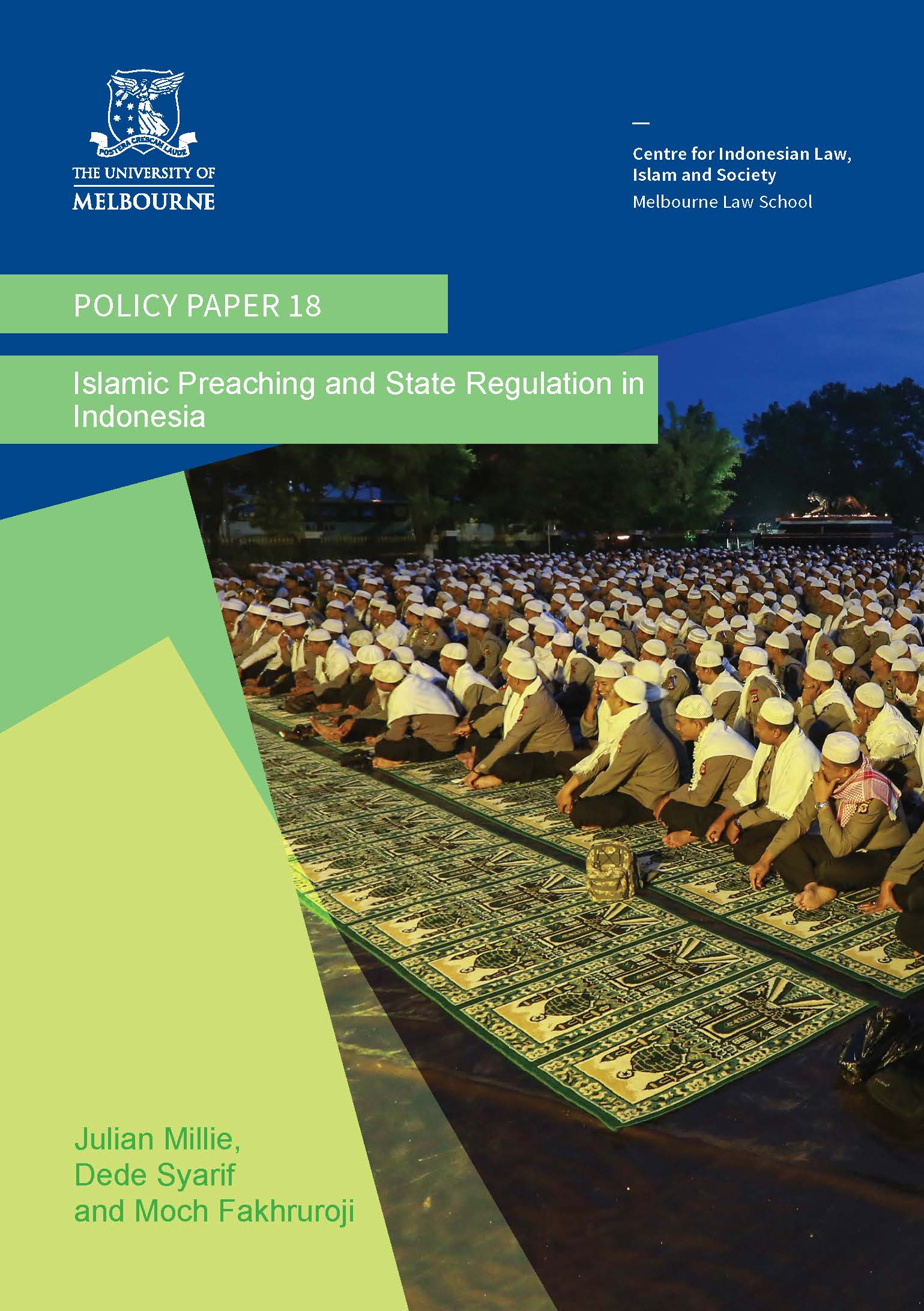No 18 (2019) by Julian Millie, Dede Syarif and Moch Fakhruroji

Indonesia’s Muslim preachers carry out their mission in a regulatory environment that is liberal when compared with the demanding regulations negotiated by preachers in Brunei and Malaysia. In recent times, however, the Indonesian government has given signs that it might favour a stricter regime of supervision and control. The authors – all of them social scientists with experience in studying Islamic communication in Indonesia – evaluate the pros and cons of such a move.
Throughout this working paper, the authors approach preaching as a variety of public communication, but do not assume that preaching messages should faithfully replicate national norms of ethical citizenship. After all, preaching is communication oriented to Indonesians in a specific context, namely the context created in their routines of Islamic worship and learning.
The authors provide an overview of social and political contexts for Islamic preaching, and examine the norms and rules that currently constrain preaching, referring both to Islamic norms as well as Indonesia’s positive law. The paper’s recommendations confirm the appropriateness of the low level of regulation traditionally applied to Islamic preachers, and encourage the government to be more sensitive to the ways in which the policies of Indonesian governments provide models for preachers about how the nation’s diversity should be treated in public communication.
Dr Julian Millie is an anthropologist who has completed a number of research projects about Islamic practice in Indonesia. His most recent book, Hearing Allah’s Call: Preaching and Performance in Indonesian Islam (Cornell University Press, 2017), analyses styles of preaching in Indonesia, as well as the debates that take place around them. He holds the Chair of Indonesian Studies at Monash University.
Dede Syarif is lecturer in the sociology program of the Sunan Gunung Djati State Islamic University, Bandung. He received his doctoral degree in 2018 from the inter-religious studies program at Gadjah Mada University, Yogyakarta. Dede’s current research is concerned with minority religion in Indonesia, social movements and the sociology of religion.
Moch Fakhruroji is a communications researcher who teaches in the Faculty of Da’wa and Communications at Bandung’s Sunan Gunung Djati State Islamic University. He is a doctoral graduate of Gadjah Mada University, and his major book to date is Dakwah di Era Media Baru (Simbiosa Rekatama, 2017). His major research interests are in contemporary da’wa studies, focussing specifically on televisual and digital media.